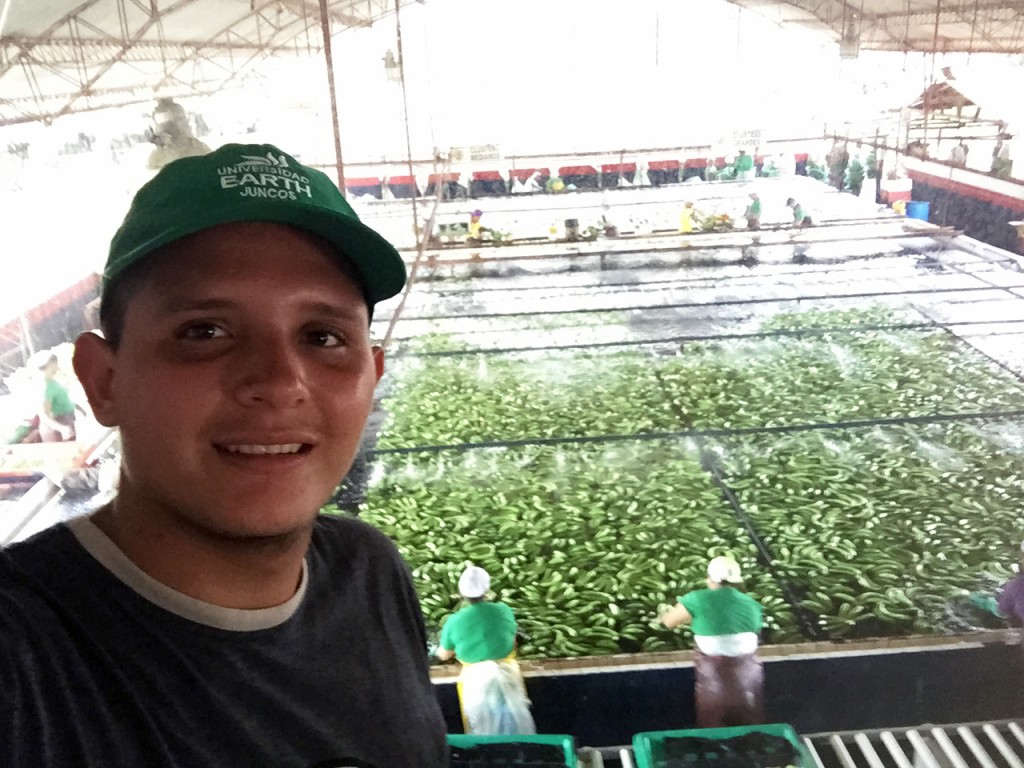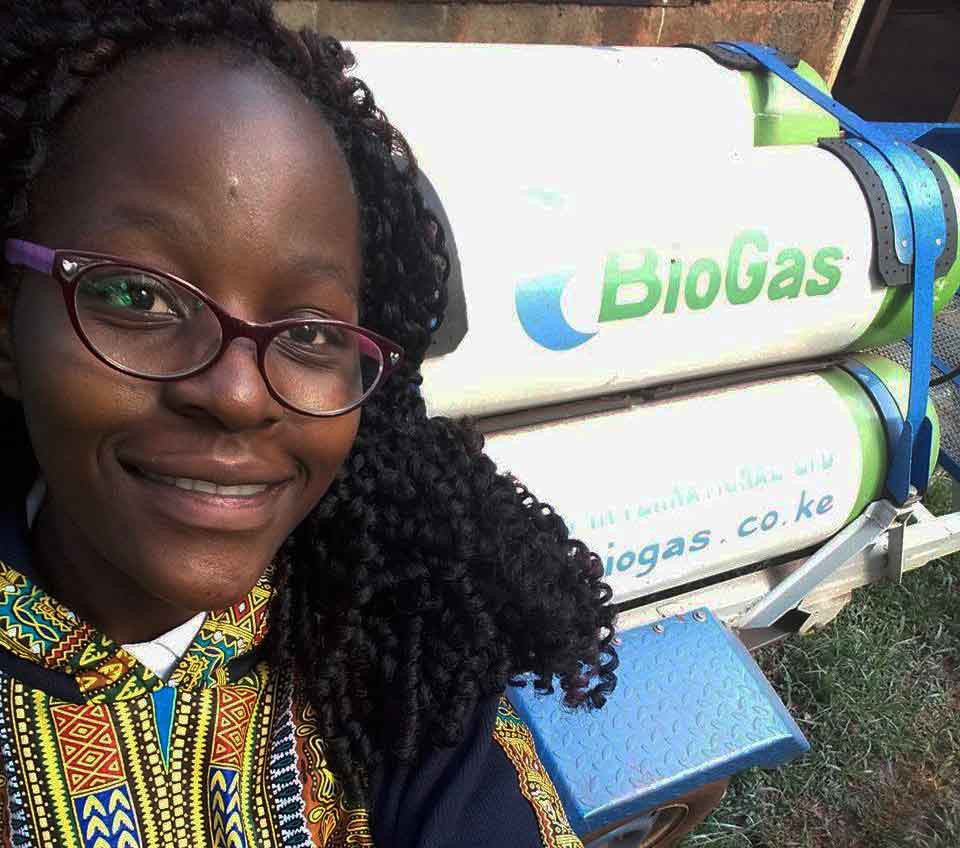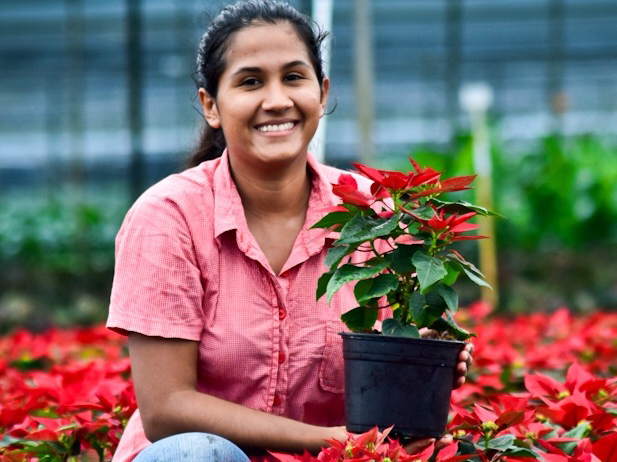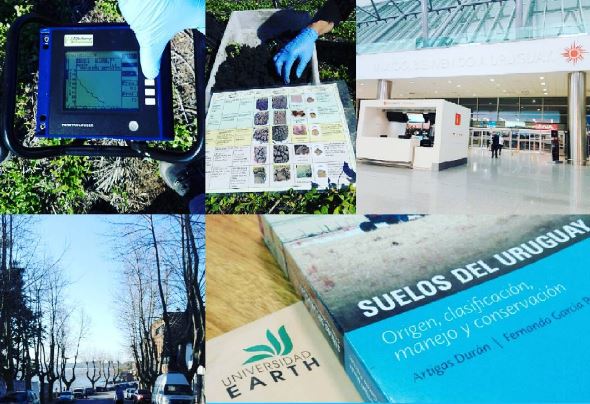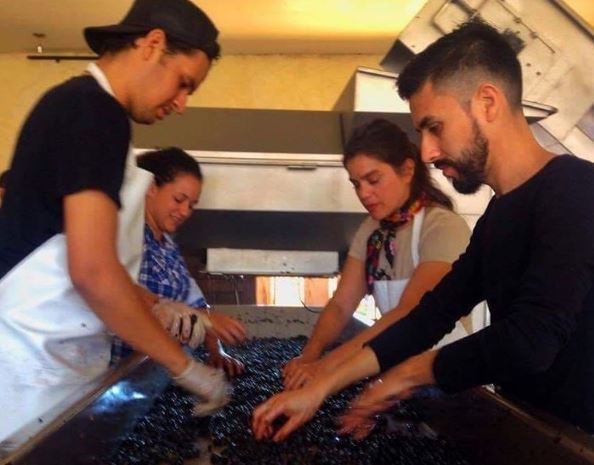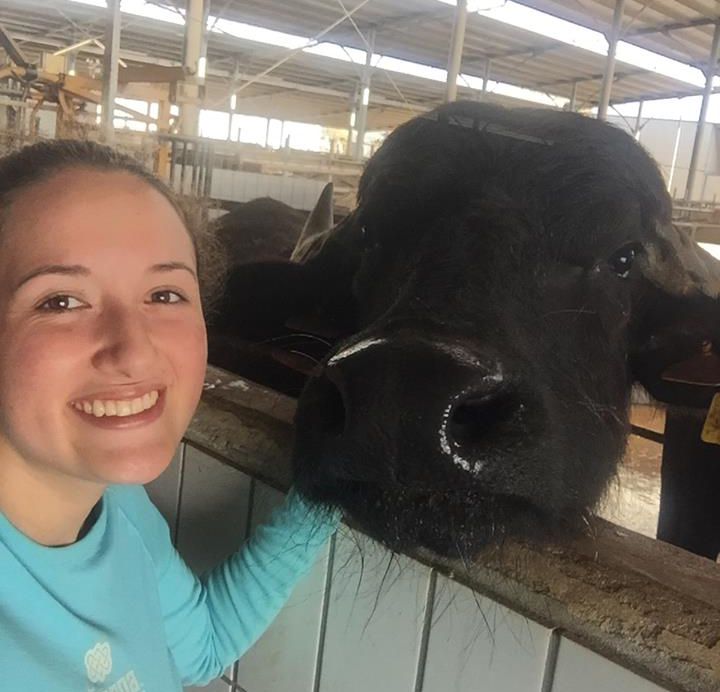2016 Internships: success stories
During the last quarter of the year, third-year students from EARTH University complete an international internship. This is one of the most important experiences in the University’s curriculum because it prepares students in a real-world work role or investigation, where they must contribute their knowledge and values to an organization that takes them in during this time.
We caught up with some of these students of Class of 2017, the success stories, their professional experiences and personal growth.
Aarón Fernández (’17, Costa Rica), The MasterCard Foundation Scholar
Internship: DIXIMANT S.A. Ecuador
Area: Banana production
Aarón was involved in a pressure sampling project in the haciendas of Agricola Maria Cecilia y Catay. There he selected the irrigation modules that presented certain problems or inconsistent pressure with a special instrument that measures the PSI (pounds per square inch). He also gathered data during harvest season, analyzed fruit and worked on irrigation.
As community work, Aarón participated in rebuilding a home that was affected by the earthquake that hit Ecuador in April of 2016.
“I feel very satisfied because throughout this internship I have learned about various areas that are involved in daily activities at a banana farm. Also, my internship has involved four different farms, which gave me a bigger perspective on banana production. I am also very thankful for the support I have received from the engineers Marco Calderón and Juan Siguenza who allowed me to manage each one of these projects from the start, taught me about banana production and most importantly, have complied with all the conditions required for the internship. Additionally, I have also received a lot of support from the farm administration, who also provided me with additional personnel for the projects I was working on, delivered the required materials and were vested in that the projects were implemented and successful.”
Phenny Omondi (’17 Kenya) The MasterCard Foundation Scholar
Internship: BIOGAS INTERNATIONAL LIMITED KENYA
Area: Biogas and clean energies
Phenny played a crucial role in developing hydroponic fodder for rural producers, presenting the benefits of using clean energies in Africa.
She worked with the use of “bio sludge” (the remains from the biodigester) as fertilizer; she was an active participant in marketing biodigesters in different markets, organizing workshops where she demonstrated how to assemble a biogas kit for dairy producers from Narok, Elgeyo Marakwet, Uasin Gishu and Nakuru, Kenya.
She also was involved in biogas value-added projects that are used to heat commercial chicken coops, in substitution of carbon, LPG (liquefied petroleum gas) and electricity. Last, Phenny also did follow up with clients and organizing data bases.
“Being a relatively small company, there is plenty room for personal growth and learning because you have the opportunity to be involved directly in the enterprise’s most important activities. Most of the technical knowledge I acquired was because the company’s director and the rest of the staff were very open to teaching me, sharing knowledge and explaining training and theory concepts. They also provided quick and effective feedback for improving my work plan, which was very helpful for time-saving and avoiding conflict.”
Daniela Robleto (‘17, Costa Rica) The MasterCard Foundation Scholar
Internship: Costa Farms, Dominican Republic.
Area: Ornamental production in controlled environments.
Daniela was assigned to work in the Dominican Republic in ornamental production under controlled environments that favor an ideal development for growth, so natural conditions do not have a direct influence in the plants’ development.
She worked on photographic documentation of the progress of the treated species, measuring the electric conductivity and the plants’ pH, gathering technical and weather data that affect the development of the poinsettia during the production cycle of 2016.
“I can say, with absolute certainty, that it was a worthwile experience; I learned many technical data and it surpassed my expectations. From a professional angle, I had terrific support from my supervisor who became my mentor and team mate. I felt comfortable and I always felt they trusted my work.
On the personal side –which I consider the most important aspect- I now have a clearer perception of what it takes to work in an organization and what is expected from a professional. I learned that we have to understand that our culture and values are viewed differently depending on the place where we are going; and today, more than ever, y believe in those values. It’s not about changing to fit in a different world, but rather changing my surroundings so they are more accepting to me. I’m proud to have represented EARTH and having been characterized as educated and an environmentalist for the vision we always carry with ourselves wherever we go.”
César Ormaza (‘17, Ecuador)
Internship: Kalsec, Estados Unidos.
Area: Procesamiento de alimentos.
Kalsec is a world leader in processing agricultural products to obtain natural spices, herbs, tastes, colors, antioxidants, hops and natural ingredients for a variety of food, beverage and pharmaceuticals.
During his internship, César was responsible for waste-management: he did an audit that proved that 30% of the waste generated that is to be sent to the land fill could be recycled. Presently, they are implementing a new waste-management protocol, new recycling containers were placed and an on-line mandatory course for employees was designed so they learn how to classify waste.
He also studied ways to become more energy efficient and supported the organization’s process to become Rainforest Alliance certified.
“This internship has been my first professional experience, providing me with unique professional and personal development. I believe my greatest fulfillment has been the ability to implement diverse tasks simultaneously which has required a better use of my time, avoiding procrastination; all of this due to the projects I was assigned.
Besides time management, I also developed additional skills, mainly those related to waste management and sustainable architecture, both of which are in my area of interest.”
Emilio Suárez (‘17, Costa Rica)
Intership: Orchard Africa, South Africa.
Area: NGO
At Orchard Africa, Emilio was involved in reconstructing and managing green houses in order to improve crop growth. He also investigated brush, soil, vertical agriculture and more, aligned with the companies’ with each organization’s mission: ensure that the churches in South Africa respond to the spiritual, physical and emotional needs of the communities.
“I feel pleased with everything we did in the towns; I was able to fulfill all the objectives and develop. I was able to use all the acquired knowledge from my three years at the university: from the mechanical skills to soils. The work flow was steady and since most of the time I was by myself, my opinion was the only one that counted.
I was also in close contact with the person responsible for the green houses –when there weren’t any interns or groups. She was always attentive to my indications and was frequently asking me questions about agriculture.”
Darwin Erazo (‘17, Ecuador)
Internship: National Institute of Agricultural Investigation, Uruguay
Area: Investigation
Darwin centered his internship in soil management and conservation, specifically physical-chemical quality studies.
He executed a study in the physical qualities of soil in an experimental monoculture system in soy production, comparing cover crops, evaluating different physical and chemical parameters to determine degradation levels of the diverse treatments.
The study included field sampling and processing the results of these samples in the laboratory, all of this with the help of a team in the field and in the lab, which is why he also gained valuable human resources management experience. Also, he participated taking field samples and results analysis in other experiments.
“This experience allowed me to develop different capabilities in the professional environment, as well as improve personal attitudes and aptitudes for decision-taking, planning, strategy design and human resource management. One of the most important learning experiences I had is that however well designed a plan may be, and even if all the necessary aspects have been taken into consideration, one or more challenges may surface forcing you to take new decisions in order to accomplish with all the established objectives.”
Renata Araque (‘17, Ecuador)
Internship: La Carrodilla Farm, Mexico.
Area: Organic grapes for wine production
One interesting fact about the company where Renata worked is that they grow organic grapes using organic fertilizers, like the compost they have developed right there at the farm using organic residue generated on site, trichoderma to control plagues and additional environmentally friendly cultural practices.
Renata actively participated in production in the wine cellar, assisted in the orchard, farm and vineyard, and was part of the team during the grape harvest. Her main project consisted in a preparing a field manual that includes all the information concerning the management of the farm.
“This internship is an opportunity to put in practice and learn to appreciate all that our professors have passed on to us in class, and you can see how everything makes sense, more so when you fall in the hands of an alumnus (Jimena Rábago, ’09 Mexico).
Personally, working in an organization where the lead is played by an EARTH graduate is particularly encouraging as I saw all that she has accomplished. The leadership we talk about every day at EARTH has positive results.
Undertaking a real-life work experience and having the opportunity to be part of a team that doesn’t single you out as an intern, that assigns you responsibilities as well as trust, helps you grow on a professional and personal level.”
María Fernanda Barragán (‘17, Ecuador)
Internship: Tenuta Vannulo, Italia.
Area: Dairy production from buffalo milk
María Fernanda took advantage of her internship to broaden her knowledge of an animal she likes a lot: buffalo. In Tenuta Vannulo, a company specialized in dairy production using buffalo milk, she performed different tasks, such as managing the buffalo in the stables, taking registry of the daily control performed by a veterinarian, running the automatic milking, produced organic cheese (mozzarella, scamorza, ricotta) and butter. She also produced bread, icecream, pudding and yogurt, helped in guided tours of the hacienda and assisted in the manufacturing of buffalo leather products. On top of that, she learned Italian.
One of the high points of her internship was when she detected a fly problem in the farm, Fernanda took charge and prepared a natural trap using natural ingredients. It was so successful she was authorized to create more traps and even teach the remaining employees how to make them so they could manufacture more at home.
“The internship was an opportunity for enormous personal growth. The experience of living by myself in a faraway country and having to be completely independent was a very positive challenge. It helped me become more secure about my abilities and face my weaknesses.I shared with so many people that work at the hacienda,
I learned about them and how hard they work each day for their families. Seeing these admirable people motivates me to follow their example and continue working in my studies and towards my goals.”
Adriana Forero (‘17, Colombia) The MasterCard Foundation Scholar
Internship: “Zero waste Cummins” program, Mexico.
Area: Waste management
Marcela worked in putting together a waste management plan for the community of La Pila in San Luis Potosi. She had to interview school representatives from the region to measure acceptance and organized workshops about waste classification following the model of “learning while doing” (children had to classify waste by themselves). Approximately 2,500 children, teenagers and youths between 3 and 17 years old participated in the activity. They also joined the initiative “Let’s clean our Mexico” by putting together a squad of 250 people, and teaching other influential members of the community like the major, professors, heads of families and former gang members.
“I feel fortunate to have been able to share what I have learned at the university during these three years. Being involved with so many people helped me practice oral presentation skills and gain confidence. I’m pleased to know that with passion and dedication you can change the lives of others.
Being a foreigner is an advantage I have been able to leverage to make others realize that this is something they can do. They are curious that an outsider can teach them to care for the place where they live. I’m respected and feel safe, even though the community faces internal conflicts.”

